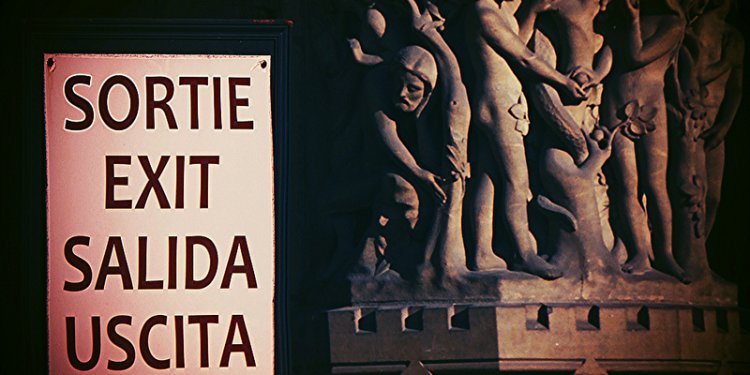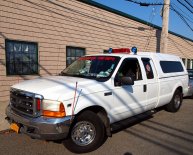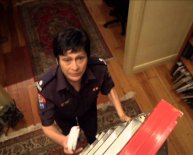
How old do you have to be a Volunteer Firefighter
Topic:
VOLUNTEER WORK; WORKERS' PAYMENT; LABOR (GENERAL); JOB (GENERAL); FIRE DIVISIONS; JUVENILES; LIABILITY (LAW);
Area:
FIRE DEPARTMENTS AND FIREMEN; JUVENILES - WORK;
|
2006-R-0772 |
||
|
By: John Moran, Main Analyst |
||
You requested a description of exactly how Connecticut's kid labor legislation impact cadet and junior volunteer firefighter programs and exactly how various other states manage this.
SUMMARY
Cadet and junior firefighter programs enable minors (youth ages 14 to 18) to know about volunteer firefighting; train with experienced firefighters; plus in certain areas, assist at fire scenes. Child work rules that prohibit minors from participating in hazardous work and restriction work hours apply to these programs. Even though the junior firefighters tend to be volunteers, they, like adult volunteers, are considered workers for the volunteer fire division (VFD) for reasons of responsibility and employees' settlement.
At problem is striking a balance between safeguarding kids from possibly dangerous circumstances and encouraging efforts to teach and recruit teenagers into firefighting. Recently, the state Department of Labor (DOL) granted a letter setting up instructions for permitted junior firefighter activities at various centuries. Since Connecticut legislation does not especially address these programs, DOL utilized existing labor law and DOL laws to build up recommendations for junior firefighters. For instance, the guidelines allow minors age 15 or older to respond to problems unstoppable department vehicles after obtaining proper education.
We compared Connecticut's policy with those of two neighboring states, Massachusetts and New York, as well as 2 says, Pennsylvania and Virginia, in which VFDs offer lots of the state. A few of these states were either significantly or even more restrictive than Connecticut in permitting cadet firefighters become involved in numerous firefighter activities.
Dining table 1 reveals at just what age two possibly dangerous activities are allowed in five states we reviewed.
Table 1: Age Junior Firefighters Permitted To Perform Select Strategies
|
State |
Minors permitted to react burning car |
Minors allowed to enter structure at fire scene declared safe by the event commander |
|
CT |
15* |
16 |
|
MA |
18 |
|
|
NY |
At least 16, but precise age determined locally |
Maybe not consistent across the state** |
|
PA |
17 |
|
|
VA |
16* |
|
|
*With proper instruction **Decided at the regional degree |
||
CONNECTICUT
Kid Labor Law
State and national legislation determine where and when young ones can work. Minors are restricted from performing dangerous work unless condition legislation clearly permits it.
Connecticut legislation prohibits those under age 18 from doing work in any occupations the divisions of Health or Labor consider dangerous. Like, you must be age 18 to use an electric powered meat cutter in a supermarket. But state law produces exceptions for all those age 16 and older (1) signed up for a bona fide apprentice system or in any Department of knowledge and DOL accepted work-study system or (2) who've finished from highschool.
State legislation in addition forbids anyone under age 18 from working in a production, mechanical, or mercantile establishment between 10 p.m. and 6 a.m. Nevertheless they may work until 11 p.m. this kind of
establishments, or until midnight in a supermarket, if the following time just isn't a normal college time. What the law states allows exceptions for minors that senior high school students as well as national emergencies.
DOL Guidance for Cadet/Junior Firefighter Programs
DOL at first given an assistance letter for cadet/junior firefighters in 2004. This year representatives of this Commission burning protection and Control, the Connecticut Fire Chiefs Association, and DOL met to help expand develop the principles. On October 25, DOL Commissioner Patricia H. Mayfield issued a new assistance page which includes listed here.
All cadets under 18 tend to be forbidden from:
1. driving any fire department car in a crisis;
2. doing interior fire suppression in structures or automobiles or perhaps in wildland fires, except grass fires;
3. entering a restricted room as defined in federal regulations;
4. answering hazardous material fires, spills, or any other occasions that'll expose a small to hazardous product exceeding a threshold emerge federal regulations (enables little motor vehicle gasoline leakages);
5. carrying out firefighting “overhaul” duties (in other words., checking to observe that an under control fire has not spread, that may feature ripping open walls or similar activities);
6. running an individual car with blue crisis lights;
7. carrying out ice relief activities;
8. any task that involves the risk of dropping six or higher legs; and
9. tasks including utilizing a self-contained breathing product or cutting torches, completing atmosphere containers, running aerial ladders, and any responsibility involving hose pipe lines with a diameter greater than 2.5 ins (except five- to six-inch drafting suction outlines).
Cadets 16 and 17 years old tend to be allowed, between 6 a.m. and 12 midnight, to complete the immediate following:
1. be a part of monitored instruction;
2. answer emergencies burning division cars, after appropriate education;
3. fight lawn fires, after proper instruction;
4. perform search-and-rescue operations, not including architectural fires;
5. enter a fire framework after the fire is going and also the event commander has announced the dwelling safe;
6. perform traffic control tasks after proper training;
7. drive crisis automobiles under 10, 000 pounds in nonemergency mode, after correct education;
8. collect hoses and clean fire views after the event commander has actually announced the location secure;
9. use pneumatic- or power-driven saws, shears, Jaws-of-Life kind products, as well as other power tools only during instruction;
10. run particular pumps at fire scenes; and
11. handle charged hose pipe lines around 1 ¾ inches in diameter.
Cadets 14 and fifteen years old are allowed to volunteer just between the hours of 7 a.m. and 10 p.m. and may also just do the following:
1. observe outside firefighting activities, while under guidance;
2. tidy up at a fire scene, only outside the construction and just after the incident leader declares the scene secure;
3. after proper education and turning age 15, drive burning department automobiles giving an answer to problems;

















